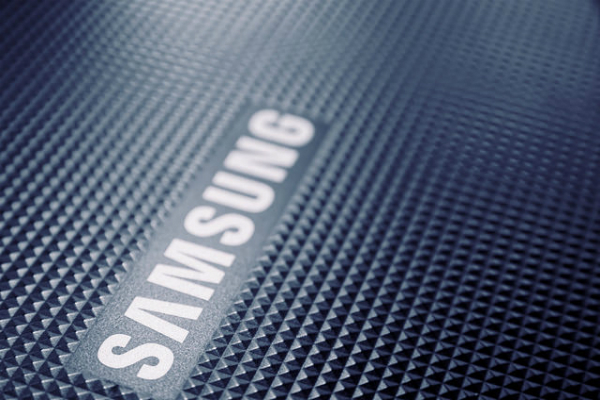 EMERGING TECH
EMERGING TECH
 EMERGING TECH
EMERGING TECH
 EMERGING TECH
EMERGING TECH
Samsung Electronics Co. Ltd. confirmed Wednesday that it will unveil its Galaxy S9 at Mobile World Congress next month, verifying reports that emerged in December.
It was initially reported that the flagship device would make an early appearance at the Consumer Electronics Show this week, but these claims were later denied by the South Korean tech giant.
DJ Koh, president of Samsung’s mobile business, confirmed that the devices will be launched at the trade show next month, which kicks off on Feb. 26. The company will also announce at MWC in Barcelona when the devices will go on sale, which is likely to be March.
The Galaxy S9 and S9+ will reportedly look very similar to its predecessors, but are expected to get upgraded cameras, new Snapdragon 845 chips, 6 gigabytes of RAM and 512GB of storage. Samsung will also reportedly move its fingerprint scanner from its current awkward position to below the camera.
Another device that was expected at CES was Samsung’s much-anticipated foldable device, currently referred to as the Galaxy X. Koh told reporters last year that the Galaxy X would be launched in 2018, but has now said that the foldable device will only make an appearance sometime next year.
Samsung has been toying with the idea of foldable displays since 2009 when it unveiled its first foldable display at the annual CES. But if recent reports are to be believed, it will soon face competition from the likes of Apple Inc., Oppo Electronics Corp. and Huawei Technologies Co. Ltd., which are all reportedly working on their own foldable devices.
Koh said the company’s biggest obstacle at the moment with the foldable device is its user experience. The latest report now suggests Samsung is tentatively planning to begin final construction of the foldable device at the end of this year.
Sourcing multiple industry representatives familiar with the matter, South Korean tech news site ETNews reported that the foldable screens will go into production in March, panels will follow in September and final construction will start in November. Samsung declined to confirm this production schedule.
This latest report also said the foldable device will sport a massive 7.3-inch organic light-emitting diode or OLED display. This device is planned to be foldable so the massive size would presumably easily fit into a pocket when it’s folded.
A massive OLED display like this will obviously come with a hefty price tag for consumers. The iPhone X, Apple’s first OLED iPhone starts at $999. Samsung, which is currently the sole producer of the OLED displays for Apple, earns $110 off each iPhone X sold.
Koh also said its Bixby 2.0 digital assistant will be launched within the year, while all Samsung devices will support the virtual assistant by 2020. Samsung was a latecomer to the world of digital assistants and faces strong competition from the more advanced Alexa from Amazon.com Inc. and Google LLC’s own Assistant.
A report late last year suggested that Samsung plans to launch its own smart home speaker this year, taking on the Amazon Echo, Google Home and the Apple HomePod, which will reportedly launch in the next six weeks.
Amazon and Google, which is usually missing from the tech show, have dominated CES this week with various new integrations, including AR glasses, cars, TVs and more. However, despite its rocky start, Samsung has continued to push its own digital assistant at the event.
This week has seen the tech giant announce the integration of Bixby into its latest Family Hub refrigerators (below) that will allow users to view items that are expiring, get recipes for these items and more.
The company has also announced that select Samsung Smart TVs will be Bixby-enabled this year, allowing users to control their TV and other smart devices with their voice. Bixby will also alert a user via a notification to their smartphone when their favorite show is about to begin. Users will even be able to ask their TV to check what’s in their Family Hub fridge.
As part of its announcements at CES this week, iHeartMedia Inc. announced its streaming service, iHeartRadio, will now be integrated with Bixby, allowing users to play songs, create a Custom Artist station, skip songs and more.
Samsung also showcased the Bixby calorie counter feature at CES. It’s not generally available for consumers yet, but the company is teaching its artificial intelligence to count the calories in food. Users would take a photo of their food and Bixby would get to work analyzing the contents and then provide a calorie estimate.
In its current form, the feature isn’t practical and requires users to take a photo of each individual item on their plate. A future version may be able to analyze an entire plate and add the results to the Samsung Health app.
Support our mission to keep content open and free by engaging with theCUBE community. Join theCUBE’s Alumni Trust Network, where technology leaders connect, share intelligence and create opportunities.
Founded by tech visionaries John Furrier and Dave Vellante, SiliconANGLE Media has built a dynamic ecosystem of industry-leading digital media brands that reach 15+ million elite tech professionals. Our new proprietary theCUBE AI Video Cloud is breaking ground in audience interaction, leveraging theCUBEai.com neural network to help technology companies make data-driven decisions and stay at the forefront of industry conversations.